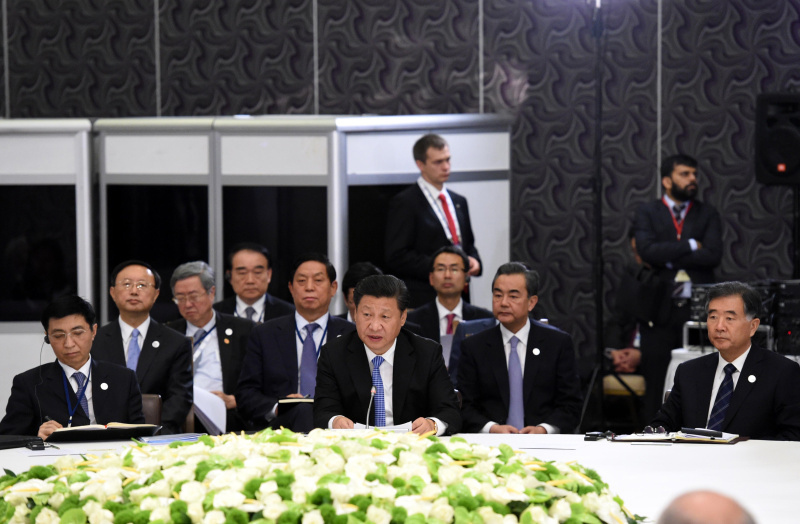Scholars: China’s development to shape world in years to come

Chinese President Xi Jinping (C) said at the 2015 G20 Antalya summit that China is still a growth engine for the world economy.
The sixth World Forum on China Studies, themed “China’s Reform Opportunities for the World,” was held in Shanghai on Nov. 20 and 21. More than 230 scholars and experts from over 30 countries and regions discussed the link between China’s path and global economic development.
Martin Jacques, a senior research fellow from the Department of Politics and International Studies at the University of Cambridge, said several factors are enabling China’s global influence to grow. The most important one is China’s reforms, the success of which has increased its appeal to other countries.
Although Western concepts are still dominant in debates about national governance, Jacques pointed out two trends that could change this phenomenon. One is that dilemmas facing Western governments are emerging every day. The other is that people are paying more attention to China’s governance patterns.
The world’s burgeoning fascination with China is one byproduct of China’s transformation and growing international clout. Jacques claimed that global governance should be viewed from a broader perspective in the future. He said it is likely that China will exert far-reaching influence over the transformation of global governance.
China is going global while retaining its distinguishing features. In terms of theoretical innovation and practical explorations of China’s path, participants said China has realized that its development pattern is closely linked to that of the global system.
One manifestation is the 13th Five-Year Plan (2016-2020), which was approved during the Fifth Plenary Session of the 18th Central Committee of the CPC. In the new plan, China linked its economic blueprint to global economic development for the first time, which is a sign of its confidence and determination in economic development. Scholars contended that this will make other countries follow suit.
Since its reform and opening up, China has offered a “Chinese momentum” to the world economy. “By 2020, China will contribute to at least 20 percent of the world economy, whether measured in terms of the rate method or purchasing power parity,” said Hu Angang, director of the Institute for National Conditions at Tsinghua University. He added that in the second half of the 20th century, the primary engine for world economy was the United States. At the dawn of the 21st century, China became the other engine.
China’s is one of the largest trade partners of nearly 200 economies in the world at a time when many countries are experiencing unbalanced economic development. China, serves as a microcosm of the world economy. Jaya Josie, director of BRICS Research Center at the Human Sciences Research Council argued that China’s goal is a more balanced and steady pattern of economic growth. He said multilateralism is the basis of China’s green and quality growth. The purpose of “the Belt and Road” initiative is to deepen cooperation with more countries through multilateralism, so that China will be closer to the world. It will also be conducive to correcting the nation’s unbalanced development. Jia is particularly optimistic about cooperation with African countries.
Participants agreed that an extremely inclusive cultural tradition has complicated national conditions, and reform and opening up based on learning and innovation has paved the foundation for China’s path. At the same time, there is still a long way ahead for China’s theoretical innovation and practical exploration.
China’s path is the prerequisite for realizing socialist modernization, some domestic scholars argue. It also provides an alternative road to modernization for other countries. Attendees claimed China should seize the opportunity of globalization to advance its reform and opening up, so that it will play a bigger role in regional political, economic and cultural development, and China will better implement its strategy of “going out.”
“We advocate a mutually beneficial solution,” said Hu, adding that a mutually beneficial solution will produce more public goods.
The forum takes place every two years in Shanghai.
